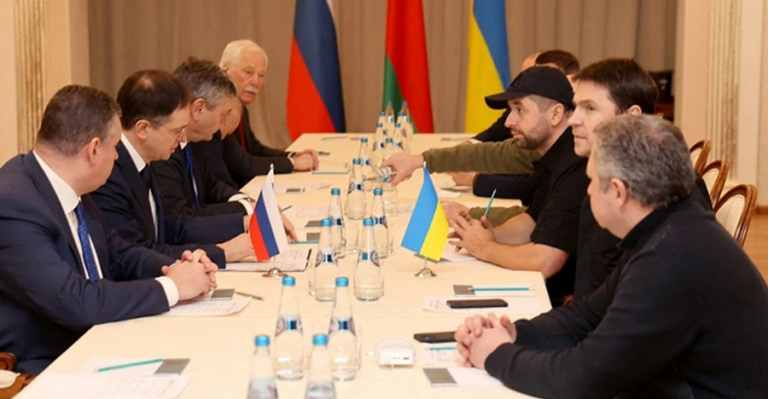Ukraine and Russia appear to have made significant progress in drawing up a 15-point peace plan, according to the Financial Times.
The plan calls, among other things, for a ceasefire and the withdrawal of Russian troops if Kyiv declares its neutrality and accepts restrictions on its armed forces, according to three people involved in the talks.
The proposed agreement, fully discussed by Ukrainian and Russian negotiators for the first time on Monday, will include Kiev’s withdrawal from NATO membership, as well as a commitment not to host foreign military bases or weapons in exchange for protection from allied powers such as the US, the UK and Turkey.
According to the newspaper, the nature of Western guarantees for Ukrainian security and their acceptance by Moscow could prove to be a major obstacle to any agreement.
Although Moscow and Kyiv have argued that progress has been made on the terms of the agreement, Ukrainian officials remain skeptical about whether Russian President Vladimir Putin is fully committed to peace and are concerned that Moscow may buy time to reorganize and continue its offensive actions.
Mikhail Pontolyak, a senior adviser to Ukrainian President Volodymyr Zelensky, told the Financial Times that any agreement would include the withdrawal of Russian troops from the Ukrainian territory they had occupied since the beginning of the invasion of Azov Sea, the Black Sea as well as in lands to the east and north of Kiev.
Ukraine would retain its armed forces but would be forced to stay out of military alliances such as NATO and refrain from hosting foreign military bases on its territory.
Putin’s spokesman Dmitry Peshkov told reporters that Ukraine’s neutrality based on the Austrian or Swedish regimes is a matter for discussion.
Putin: At the beginning of the operation we asked Kyiv to withdraw from Donbas, but they refused
Russian Foreign Minister Sergei Lavrov said “very specific formalities” were “close to being agreed” in the negotiations.
Two sources said the agreement also reportedly included provisions for securing Russian language rights in Ukraine, where Ukrainian is spoken, although the official language remains.
According to the adviser to the Ukrainian president, “humanitarian issues, including language issues, are discussed only in the light of Ukraine’s exclusive interests”.
The biggest “thorn” of the negotiations remains Russia’s request for Ukraine to recognize the annexation of Crimea in 2014 and the independence of the two separatist regions in Donbas.
Ukraine, Pontoliak said, has so far refused, but is willing to separate the issue. “The disputed territories and the conflict territories are in a separate case. We are talking about a guaranteed withdrawal from the territories that have been occupied since the start of the military operation on February 24, when the Russian invasion began”, he said.
Ask me anything
Explore related questions





